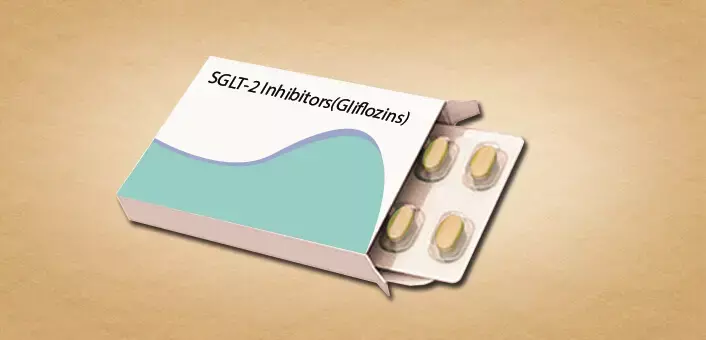- Home
- Medical news & Guidelines
- Anesthesiology
- Cardiology and CTVS
- Critical Care
- Dentistry
- Dermatology
- Diabetes and Endocrinology
- ENT
- Gastroenterology
- Medicine
- Nephrology
- Neurology
- Obstretics-Gynaecology
- Oncology
- Ophthalmology
- Orthopaedics
- Pediatrics-Neonatology
- Psychiatry
- Pulmonology
- Radiology
- Surgery
- Urology
- Laboratory Medicine
- Diet
- Nursing
- Paramedical
- Physiotherapy
- Health news
- Fact Check
- Bone Health Fact Check
- Brain Health Fact Check
- Cancer Related Fact Check
- Child Care Fact Check
- Dental and oral health fact check
- Diabetes and metabolic health fact check
- Diet and Nutrition Fact Check
- Eye and ENT Care Fact Check
- Fitness fact check
- Gut health fact check
- Heart health fact check
- Kidney health fact check
- Medical education fact check
- Men's health fact check
- Respiratory fact check
- Skin and hair care fact check
- Vaccine and Immunization fact check
- Women's health fact check
- AYUSH
- State News
- Andaman and Nicobar Islands
- Andhra Pradesh
- Arunachal Pradesh
- Assam
- Bihar
- Chandigarh
- Chattisgarh
- Dadra and Nagar Haveli
- Daman and Diu
- Delhi
- Goa
- Gujarat
- Haryana
- Himachal Pradesh
- Jammu & Kashmir
- Jharkhand
- Karnataka
- Kerala
- Ladakh
- Lakshadweep
- Madhya Pradesh
- Maharashtra
- Manipur
- Meghalaya
- Mizoram
- Nagaland
- Odisha
- Puducherry
- Punjab
- Rajasthan
- Sikkim
- Tamil Nadu
- Telangana
- Tripura
- Uttar Pradesh
- Uttrakhand
- West Bengal
- Medical Education
- Industry
SGLT2 inhibitors not linked to increased bladder cancer risk: Study

A recent study by Devin Abrahami published in the journal of Diabetes Care found that sodium-glucose cotransporter 2 (SGLT2) inhibitors are not associated with an increase in bladder cancer risk (early bladder cancer events) when compared with the glucagon-like peptide-1 receptor agonists (GLP-1RAs) or dipeptidyl peptidase-4 (DPP-4 inhibitors).
From January 2013 to December 2020, researchers conducted an extensive multi-site, population-based, active comparator cohort study using the U.K. Clinical Practice Research Datalink, Medicare fee-for-service, Optum's de-identifed Clinformatics Data Mart Database (CDM), and MarketScan Health databases. Adult patients with type 2 diabetes initiating 1) SGLT2 inhibitors or GLP-1RAs and 2) SGLT2 inhibitors or DPP-4 inhibitors are assembled for this study. To estimate hazard ratios (HRs), Cox proportional hazards models were utilized and 95% CIs of incident bladder cancer. Further the models were weighted using propensity score fine stratification.
The highlights of the study were:
1. A total of 4,53,560 and 3,75,997 adults were included in the SGLT2 inhibitor group and GLP-1RA group respectively. The users had a median follow-up from 1.5 to 2.2 years.
2. The overall results suggest that SGLT2 inhibitors were not associated with an increased bladder cancer risk compared with the GLP-1RAs (HR 0.90, 95% CI 0.81–1.00).
3. When compared with DPP-4 inhibitors (n = 853,186), the SGLT2 inhibitors (n = 347,059) were not associated with a hike in bladder cancer risk (HR 0.99, 95% CI 0.91–1.09) with a median follow-up from 1.6 to 2.6 years. In the sensitivity analyses the results were consistent thorough out.
The Authors found that SGLT2 inhibitors did not impact negatively in inducing bladder cancer risk. The findings further suggest that the short-term usage of SGLT2 inhibitors did not hinder bladder cancer incidence.
Reference:
Abrahami, D., Tesfaye, H., Yin, H., Vine, S., Hicks, B., Yu, O. H. Y., Campeau, L., Platt, R. W., Schneeweiss, S., Patorno, E., & Azoulay, L. (2022). Sodium–Glucose Cotransporter 2 Inhibitors and the Short-term Risk of Bladder Cancer: An International Multisite Cohort Study. In Diabetes Care. American Diabetes Association. https://doi.org/10.2337/dc22-1174
Neuroscience Masters graduate
Jacinthlyn Sylvia, a Neuroscience Master's graduate from Chennai has worked extensively in deciphering the neurobiology of cognition and motor control in aging. She also has spread-out exposure to Neurosurgery from her Bachelor’s. She is currently involved in active Neuro-Oncology research. She is an upcoming neuroscientist with a fiery passion for writing. Her news cover at Medical Dialogues feature recent discoveries and updates from the healthcare and biomedical research fields. She can be reached at editorial@medicaldialogues.in
Dr Kamal Kant Kohli-MBBS, DTCD- a chest specialist with more than 30 years of practice and a flair for writing clinical articles, Dr Kamal Kant Kohli joined Medical Dialogues as a Chief Editor of Medical News. Besides writing articles, as an editor, he proofreads and verifies all the medical content published on Medical Dialogues including those coming from journals, studies,medical conferences,guidelines etc. Email: drkohli@medicaldialogues.in. Contact no. 011-43720751


